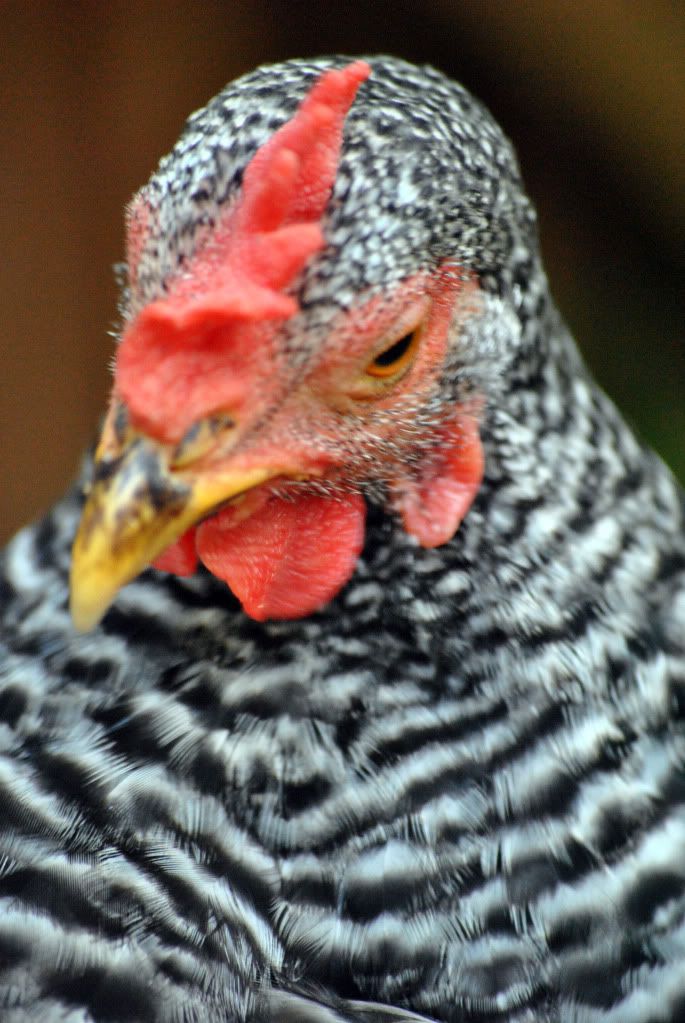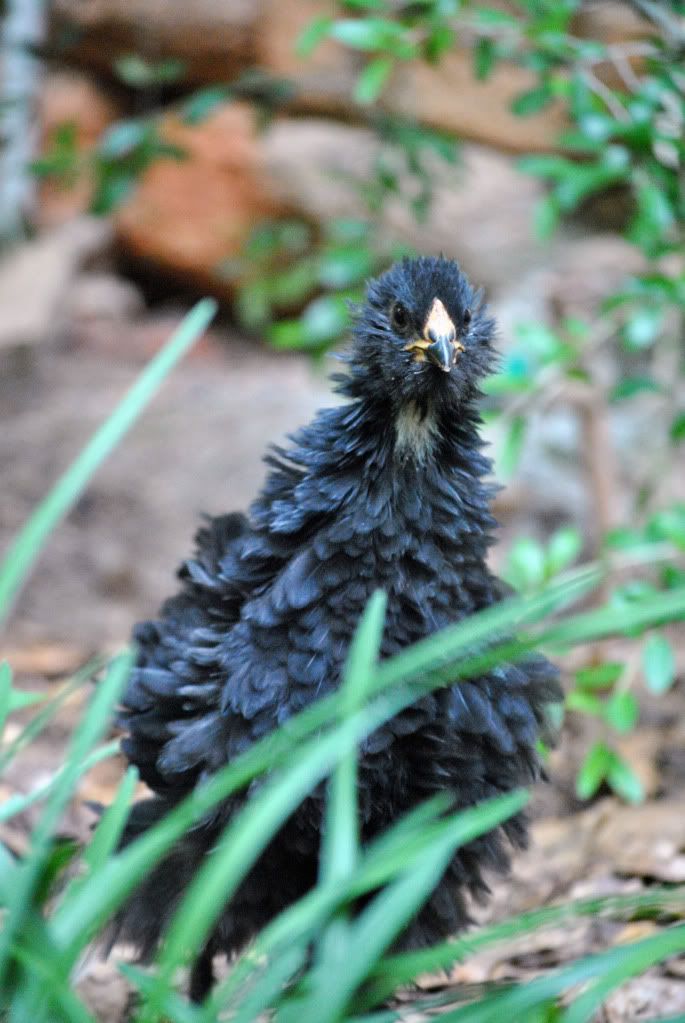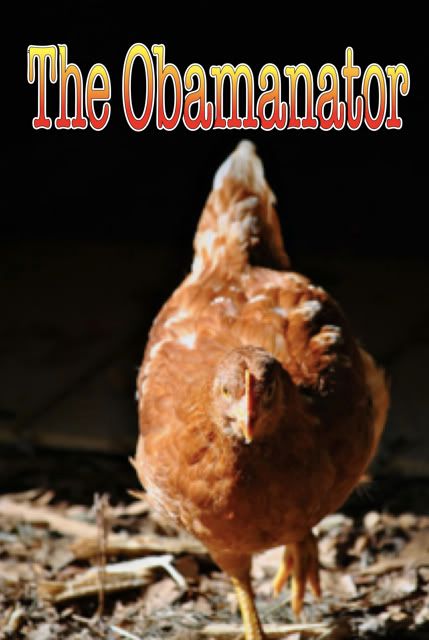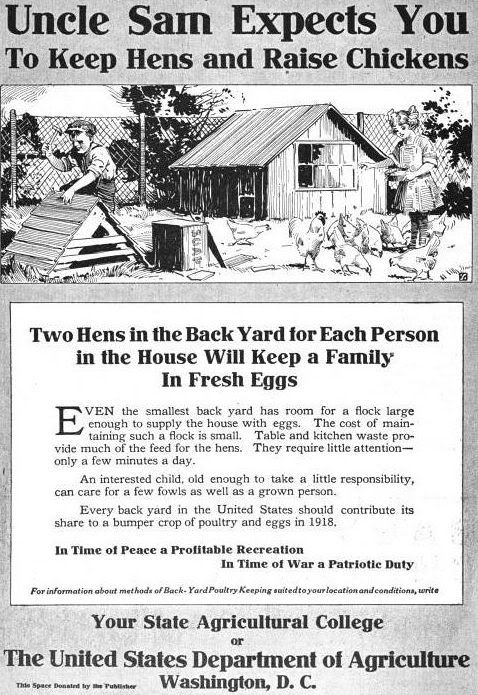 I have a large vegetable garden. Each year I grow tomatoes, peppers, beans, eggplants, squash, zucchini, beets, chard and various other things. Without fail, when I tell people about my garden, they ask, "Is it organic?"
I have a large vegetable garden. Each year I grow tomatoes, peppers, beans, eggplants, squash, zucchini, beets, chard and various other things. Without fail, when I tell people about my garden, they ask, "Is it organic?"Not to sound insensitive, but when I hear this, I wonder if that person has ever tried to grow vegetables in Georgia. We have a wonderfully long growing season here in Georgia and mild winters mean I can grow vegetables year round. But we also have three things that make gardening a challenge. Bugs. Humidity. Red clay.

Our mild winters means the bugs are never killed off by cold weather. Come spring, they are back with a vengeance. I've tried organic concoctions to kill the bugs. I've even had lady bugs shipped in (they were half dead and the rest flew away). When it finally came down to it, it was either, the bugs get to eat or my family does. I'm not working my tail off to feed the bugs.


The high humidity means that fungal diseases can run rampant if not controlled. One year I lost nearly my entire tomato crop because I didn't spray for blight. I love to try heirloom varieties, but the only way I can grow something other than blight resistant hybrids is to spray for fungal diseases. And I've found that even the blight resistant varieties and not blight proof.

My first garden was a failure because the soil was so bad. My husband tilled up a spot in our field. I say tilled up, but the soil was so hard, the tines of the tiller would only penetrate 2 or 3 inches into the soil. With help from my mom, I have spent the last five years working leaves and grass clippings into the clay to make rich, loamy soil. The problem is, those leaves and clippings require a lot of nitrogen to break down. So I fertilize. A lot.
According to the Mayo Clinic, among others, there is "No conclusive evidence shows that organic food is more nutritious than is conventionally grown food. And the USDA — even though it certifies organic food — doesn't claim that these products are safer or more nutritious."
Organic foods may cause greater environmental impact than traditionally grown crops since yields are lower and more land is required to produce the same amount of food.
So no, my garden is not organic. If it were, my family would get very few vegetables fit for consumption. I limit my use of chemicals as much as possible, try not to spray or dust when bees are active and pay close attention to label instructions on how long to wait to harvest after treating, but I am not organic. My chickens are free range, but not organic since I supplement their scratching with non-organic feed. Do you have any idea what the organic stuff costs?!















Right on Sister!! God gave us brains to be good stewards of the Earth, and also to devise ways to better our lots. We do not knowingly poison ourselves, our children, or our planet. Seems to me only Radical Muslims have a death wish. Plus, Greenies make me tired. Invite me to dinner any time.
ReplyDeleteWell said. If we went organic nation-wide, there would likely be starvation. When humanity did organic agriculture because a lack of anything else, they had a term for it: Subsistence Agriculture. And all too often, they didn't subsist.
ReplyDeleteYes yes yes! I grew up on a farm and will not buy organic food. All organic means is that it has bugs.
ReplyDeleteGood thoughts! I planted mostly hybrid this year in my first garden. The soil is much better in North Alabama than in GA, but I still fertilized.
ReplyDeleteI am sorta convinced that the organic fad is akin to the "go green" movement. Follow the yellow brick road...it is a business and organic stuff is usually more expensive.
Ben, I'm a little worried about planting hybrid. ADM, Cargill, Monsanto and others of their ilk are genetically altering the seeds for our food crops and tht certainly concerns me more than a little Sevin dust and fertilizer. Kristin--have any thoughts on this?
ReplyDeleteI don't think that hybrids are necessarily a bad thing. Hybridizing plants has allowed us to develop larger, more disease resistant, more productive crops. The seeds of these plants will not produce the same variety as the parent but for the most part, you can plant them and get something.
ReplyDeleteWhere I see a problem is some of these corporations are engineering varieties with sterile seeds. You plant them, you get nothing.
I heard a report a few years ago where one of companies you mentioned above was trying to sue a neighboring farmer for his crop. They claimed that their corn had cross-pollinated with his and since theirs was some fancy-schmancy, high-tech, branded, trademarked, copyrighted, whatever variety, his corn belonged to them.
I'll have to find that article; it was spooky.
Thanks for clearing that up Kristin. I agree with you that hybridizing has greatly increased crop yields and disease resistance. It's the way overstepping of mega-agribusiness with the alteration of major food crops that worries me. There are so few varieties of corn grown now that a major outbreak like what happenned with the potato famine in Ireland could wreak havoc globally. I think biodiversity in the the realm of food crops is a necessity. Plus, It IS pretty spooky that any one entity could by way of patents "own" the seeds of the food we all depend on. Talk about control!
ReplyDeleteI agree with you completely and could not have stated it better, Betty.
ReplyDeleteSo much of the pretty produce in the grocery store tastes like crap. How many times have we said that California strawberries are not fit for consumption?
I am out of my element on this topic, but I agree that hybridization was and is a good thing in plant technology. My concern, from my reading, is the genetic alteration of seeds. I am really uncomfortable with Monsanto's nascent "Terminator" technology.
ReplyDeletehttp://citizensforjustice.org/component/content/article/167
Thank you for the link, Jawja. Whoever thought that was a good idea? Let's just genetically engineer our food supply out of existence.
ReplyDelete...and Go Dawgs!